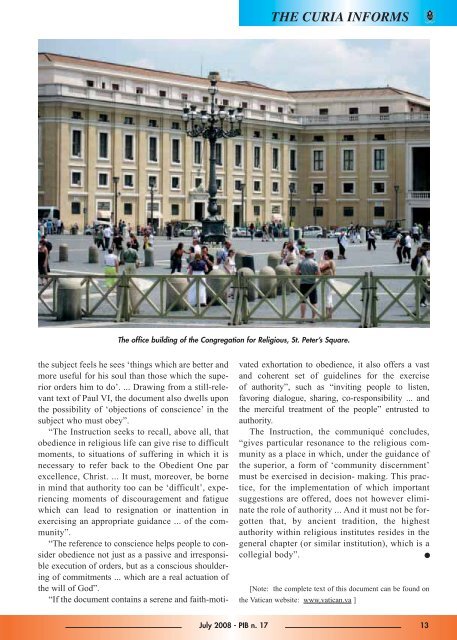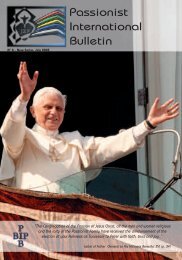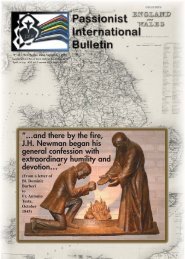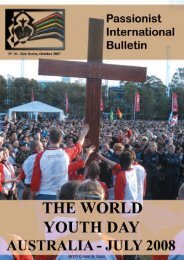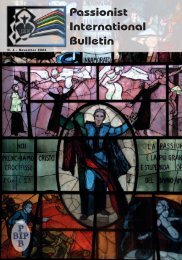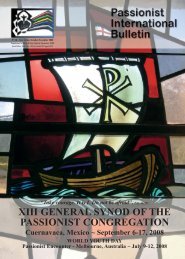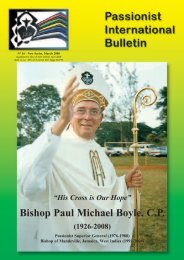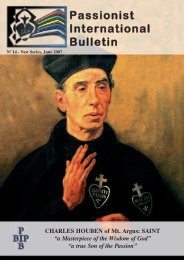the curia informs - Passio Christi
the curia informs - Passio Christi
the curia informs - Passio Christi
You also want an ePaper? Increase the reach of your titles
YUMPU automatically turns print PDFs into web optimized ePapers that Google loves.
THE CURIA INFORMS<br />
The office building of <strong>the</strong> Congregation for Religious, St. Peter’s Square.<br />
<strong>the</strong> subject feels he sees ‘things which are better and<br />
more useful for his soul than those which <strong>the</strong> superior<br />
orders him to do’. ... Drawing from a still-relevant<br />
text of Paul VI, <strong>the</strong> document also dwells upon<br />
<strong>the</strong> possibility of ‘objections of conscience’ in <strong>the</strong><br />
subject who must obey”.<br />
“The Instruction seeks to recall, above all, that<br />
obedience in religious life can give rise to difficult<br />
moments, to situations of suffering in which it is<br />
necessary to refer back to <strong>the</strong> Obedient One par<br />
excellence, Christ. ... It must, moreover, be borne<br />
in mind that authority too can be ‘difficult’, experiencing<br />
moments of discouragement and fatigue<br />
which can lead to resignation or inattention in<br />
exercising an appropriate guidance ... of <strong>the</strong> community”.<br />
“The reference to conscience helps people to consider<br />
obedience not just as a passive and irresponsible<br />
execution of orders, but as a conscious shouldering<br />
of commitments ... which are a real actuation of<br />
<strong>the</strong> will of God”.<br />
“If <strong>the</strong> document contains a serene and faith-moti-<br />
vated exhortation to obedience, it also offers a vast<br />
and coherent set of guidelines for <strong>the</strong> exercise<br />
of authority”, such as “inviting people to listen,<br />
favoring dialogue, sharing, co-responsibility ... and<br />
<strong>the</strong> merciful treatment of <strong>the</strong> people” entrusted to<br />
authority.<br />
The Instruction, <strong>the</strong> communiqué concludes,<br />
“gives particular resonance to <strong>the</strong> religious community<br />
as a place in which, under <strong>the</strong> guidance of<br />
<strong>the</strong> superior, a form of ‘community discernment’<br />
must be exercised in decision- making. This practice,<br />
for <strong>the</strong> implementation of which important<br />
suggestions are offered, does not however eliminate<br />
<strong>the</strong> role of authority ... And it must not be forgotten<br />
that, by ancient tradition, <strong>the</strong> highest<br />
authority within religious institutes resides in <strong>the</strong><br />
general chapter (or similar institution), which is a<br />
collegial body”.<br />
●<br />
[Note: <strong>the</strong> complete text of this document can be found on<br />
<strong>the</strong> Vatican website: www.vatican.va ]<br />
July 2008 - PIB n. 17<br />
13


